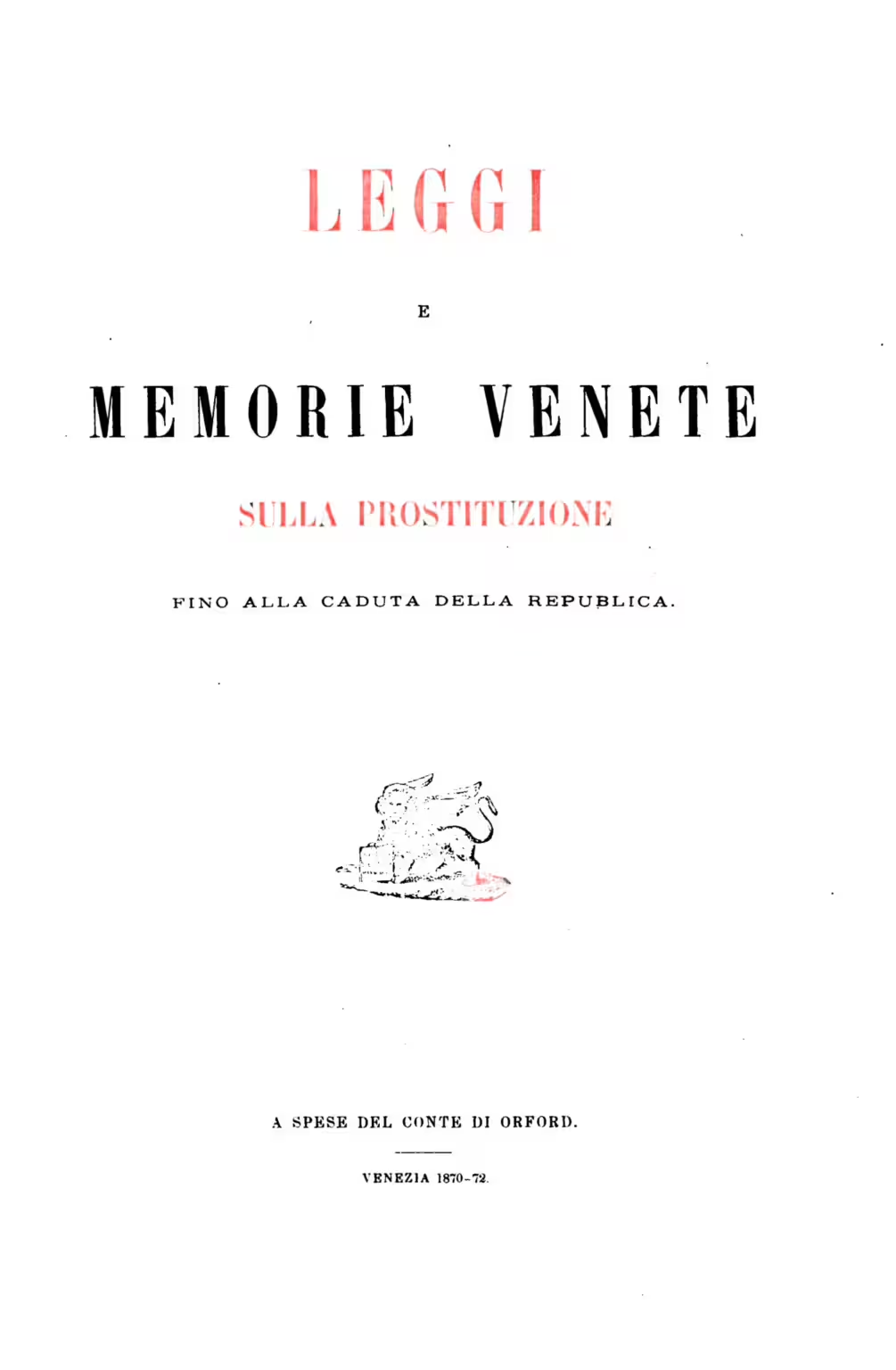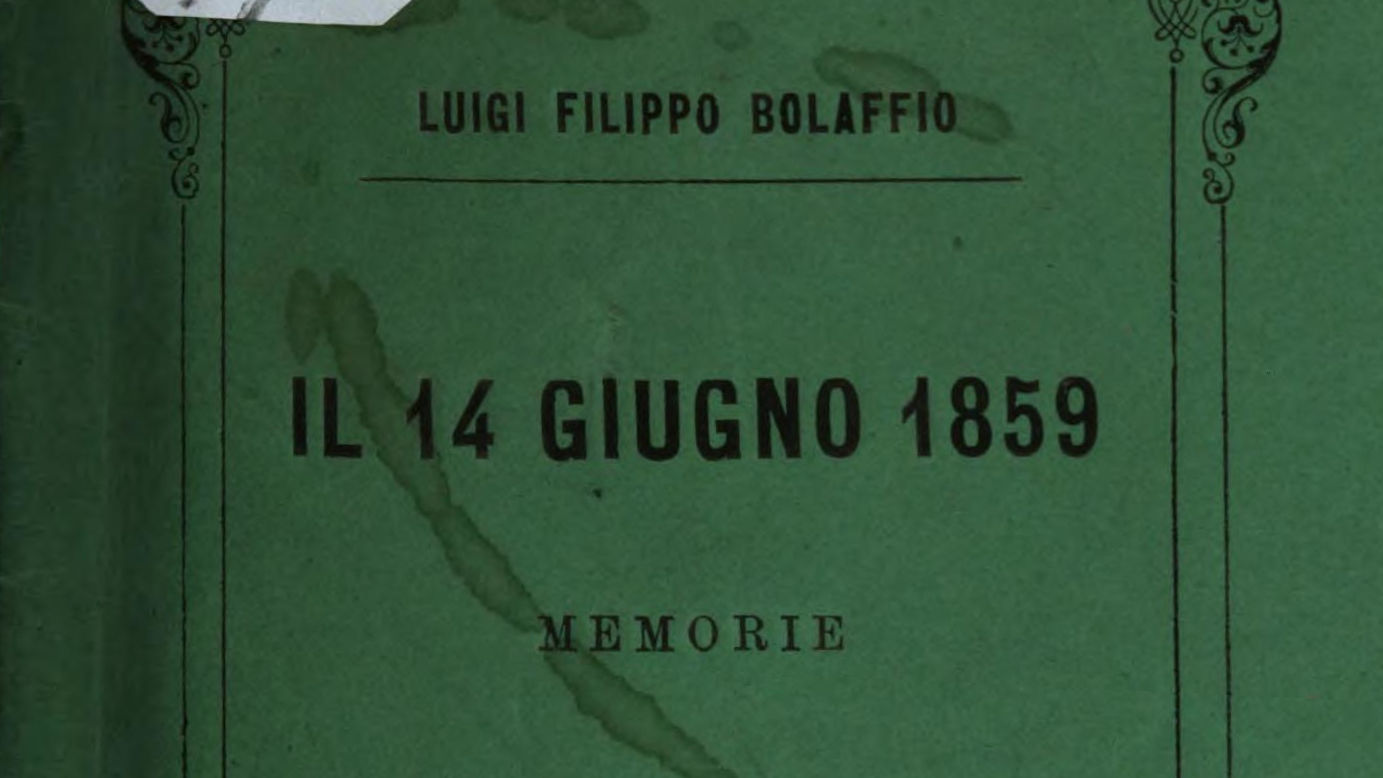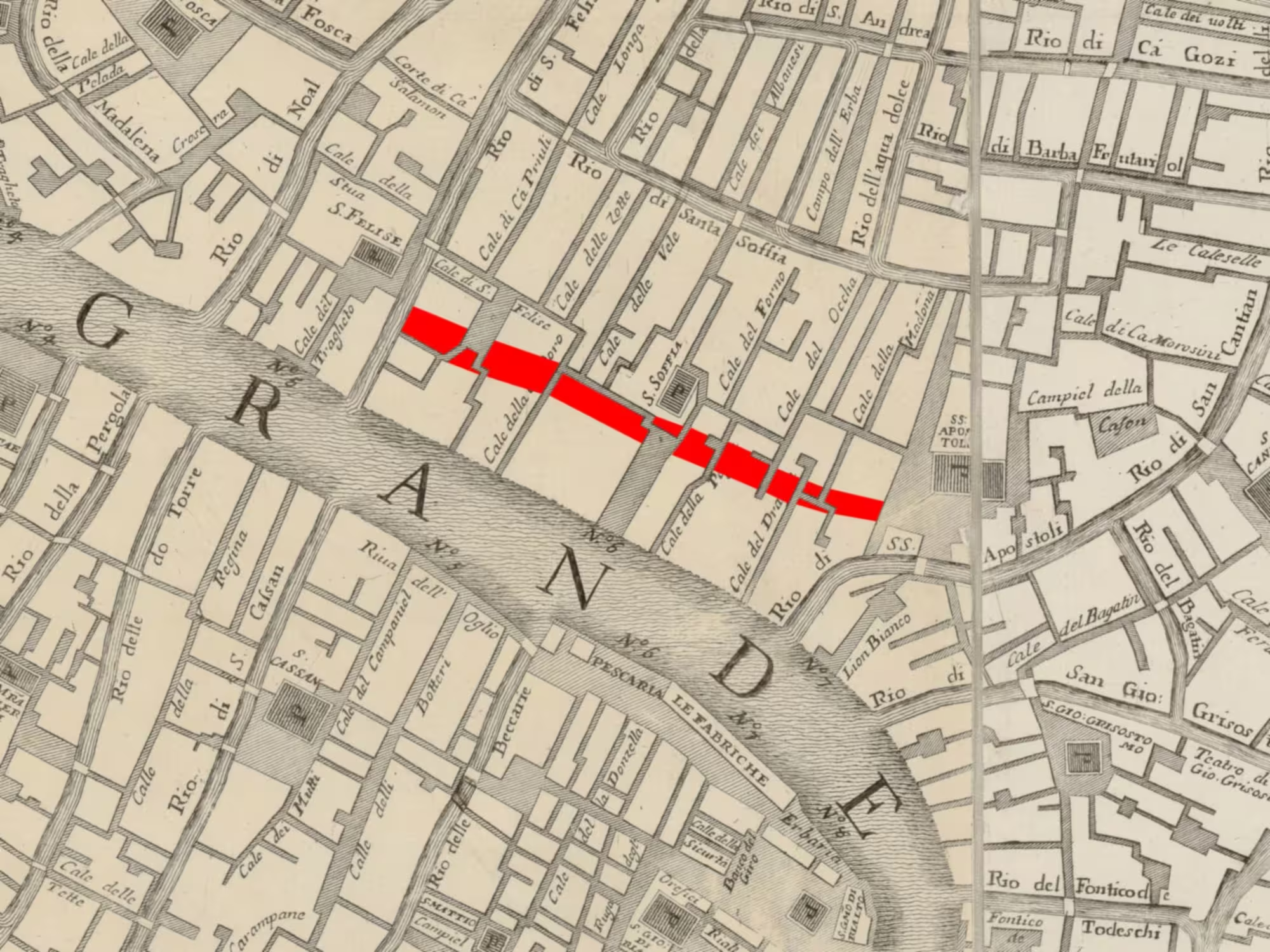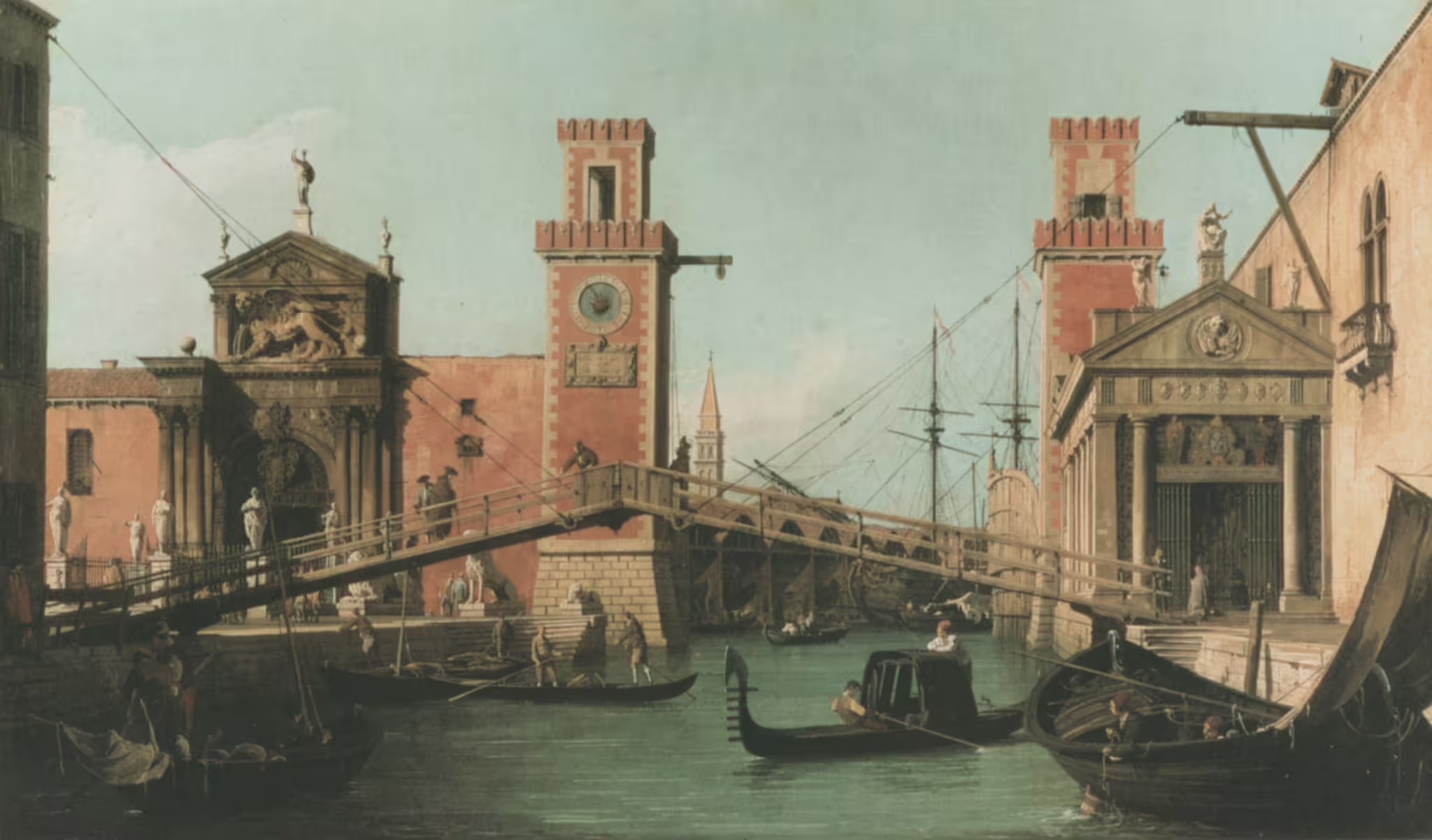One of the books I’ve used to prepare the articles on prostitution is a bit odd.
It was definitely an exclusive publication, printed in only one hundred fifty copies, which were never put up for sale. It also has no author, but only somebody who paid for the publication.
The book is Leggi e memorie venete sulla prostituzione fino alla caduta della Republica, a spese del conte di Oxford, 1870-72. Venezia, Tipografia del Commercio di Marco Visentini, 1872.
The only clue is this “Count of Oxford” who financed the production of the book.
Odd English peerages

So who was the Count of Oxford in 1872?
British peers are generally well documented, so that should be easy to find out, right?
Wrong!
There isn’t really a Count of Oxford, but there was an Earl of Oxford. It was one of the oldest English peerages, established in 1141. It was because it went dormant in 1703, following the death of the twentieth Earl of Oxford. There was no verifiable heir to the title, but there might be a claimant somewhere, so the title wasn’t extinct.
Since the title was only dormant, not extinct, it could not be given unmodified to somebody else.
The title was continued anyway, kind of, in 1711 as the Earl of Oxford and Earl Mortimer. This lasted six generations, after which that title became extinct in 1853.
The next peerage related to Oxford is the title of Earl of Oxford and Asquith. It was created for Herbert Henry Asquith, liberal politician and Prime Minister, in 1925. His descendants still hold the title.
This all means that at the time of the production and publishing of the book, the years 1870–72, there was nobody who could claim the title of Count of Oxford.
An anonymous joker?
So what does it mean?
I don’t have an answer.

The last Earl of Oxford and Earl Mortimer died in 1853, and the work could in principle have been financed by an heir, but none of the individuals I have found, seem to have had any links to Venice.
Maybe it was a joke of some kind?
One of the documents in the book — from March 18, 1618 — is about a Count of Oxford who was also Grand Chamberlain to the King of England.
Considering the date and the title, it must be Henry de Vere, 18th Earl of Oxford (1593–1625), who was in Venice in 1617, and apparently stayed for the carnival in 1618. He returned to England in October 1618, but seems to have left Venice shortly after the carnival.
He left behind some locals in trouble, which is the reason for those documents in the book.
If it was some kind of insider joke, then signing the book of as paid for by the Count of Oxford, at a time when there was nobody holding that title, would have been reasonably safe.
This all boils down to a book by an anonymous author.
However, for the work of finding, sorting and transcribing the ancient documents from the Venetian archives, we do have a name. In the preface, thanks for his diligent work in the archives goes to:
…l’amico nostro Giambattista Lorenzi, Coadiutore della Biblioteca Marciana…
Leggi e memorie venete sulla prostituzione fino alla caduta della Republica (1872), p. II.
Besides the mystery
Despite the uncertain — and mysterious — provenance, the book is still very useful.
The bulk of the book is transcriptions of Venetian legal documents. They’re laws and regulations related to prostitution, followed by a series of criminal sentences related to prostitution or, more generally, sexual activities considered unlawful at the time.
There are also some non-legal texts, like a copy of the famous Catalogo di tutte le principal et più honorate Cortigiane di Venetia, and a poem in Patavian (the dialect of the Venetian language, spoken in Padua).
The documents all have sufficient references to be checked in the archives. Given the difficulties often associated with deciphering ancient handwritten documents, transcriptions are very useful.
Versions online
Of the 150 printed copies of the book, quite a few have made it into the library collections. Several are available online.
The most complete copy I have found online is number 36, from the Italian national library in Florence.
Related articles
- Sources and publications
- A catalogue of Venetian prostitutes
- Catalogue of all the principal and most honoured Courtesans of Venice (translated)
- Catalogo di tutte le principal et più honorate Cortigiane di Venetia (original)
- Comments on the “Catalogo di tutte le principal et più honorate Cortigiane di Venetia”
- Prostitution in Venice
- Fornicators of Nuns
- State institutions of the Republic of Venice





Leave a Reply